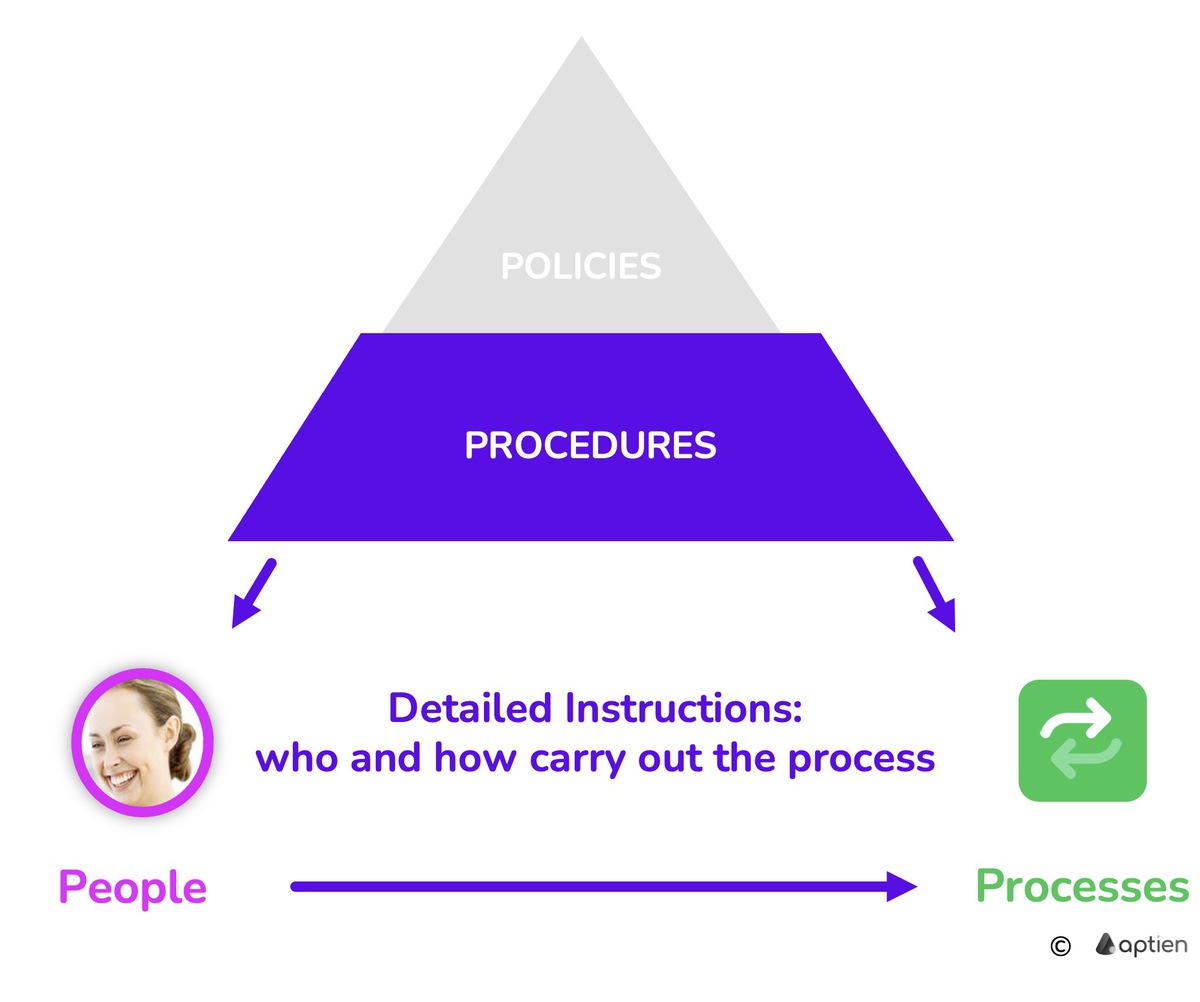Procedures, along with company policies, are core internal documents that help manage business processes and employee behavior. Procedures are structured descriptions that provide clear, step-by-step instructions on how to perform a process, task, or activity. Procedures should include:
- What needs to be done
- Who is responsible for doing it
- How to do it
Procedures must be specific and provide clear instructions to employees for the task at hand. Procedures should be easily accessible so employees have the information they need to complete their job or tasks step by step.
In some cases, a standard operating procedure (SOP) is not detailed enough and a more granular document is needed. Work instructions or manuals are very detailed documents that describe individual tasks and often include best practices for each activity. They are documents that contain detailed instructions for employees, such as machine operators, on how to perform a specific action or activity.
Examples of Procedures and Standard Operating Procedures (SOPs)
- Software Installation
- Tracking Missing Payments
- Order Submission
- Proposal Preparation
- Webinar Planning
Why Procedures Matter for Small and Growing Businesses
- Procedures ensure consistency in how tasks and processes are completed
- They keep employees, contractors, and partners aligned
- Businesses use procedures to maintain best practices and compliance
- Procedures are essential for onboarding and training new employees
- They help reduce errors and rework in daily operations
- SOPs provide clear, step-by-step instructions to guide employees in their roles
